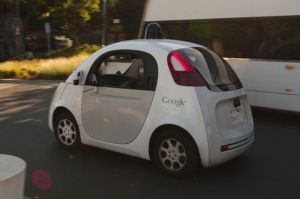News
Self-driving cars could actually increase congestion on Danish roads
This article is more than 8 years old.
Study casts doubt on earlier, more optimistic projections

Well … it doesn’t take up much space … (photo: Michael Shick)
Those who believed that the advent of self-driving cars would be a solution to some of the congestion on Danish roads may have to dial back their expectations.
Some projections had suggested that driverless cars, with their ability to ride closer to one another in traffic without causing accidents, would free up as much as 30 percent more highway space.
Damn this traffic jam
A new study from the Danish Road Directorate has suggested that the driverless vehicles will eventually be so popular that any space freed up would quickly be filled with – wait for it – more cars.
By the time all cars in Denmark are self-driving, traffic could actually increase by 14 percent across the country, and even more in metropolitan areas.
“There are two opposing effects at work,” Andreas Egense, the head of the Road Directorate’s analysis unit, told Ingeniøren. “Because self-driving cars can drive closer, we can manage our roads better. But it will also become more attractive to travel when self-driving cars are the norm.”
Minister wants tests
Ole Birk Olesen, the transportation minister, recently made a legislative proposal to be open to experiments with self-driving cars. He hopes that it may help minimise congestion problems.
READ MORE: Self-driving cars a step closer in Denmark
“Whether cars are self-propelled or not, things are getting more crowded,” he said. “Hopefully, driverless cars can help reduce queuing and congestion.”










































